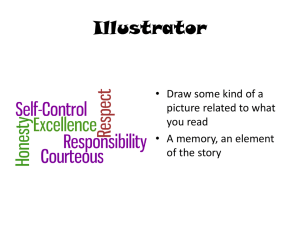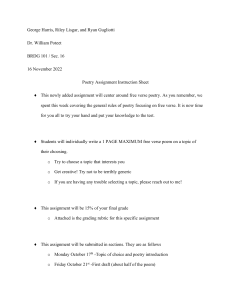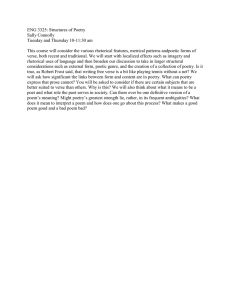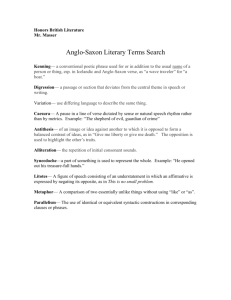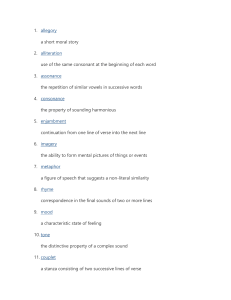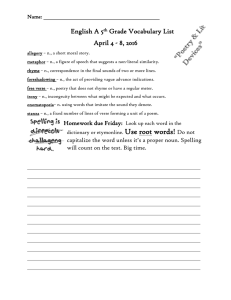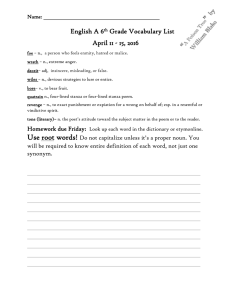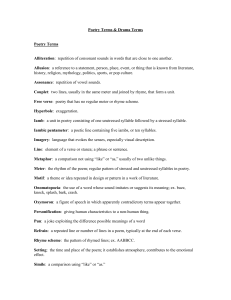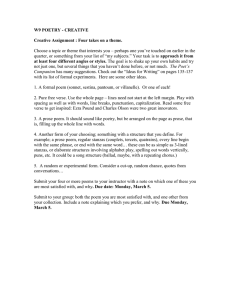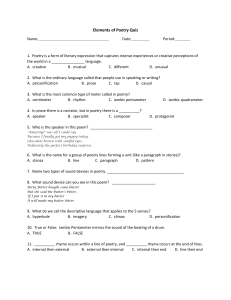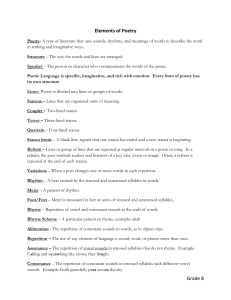Study Terms for John Gardner's Grendel
advertisement
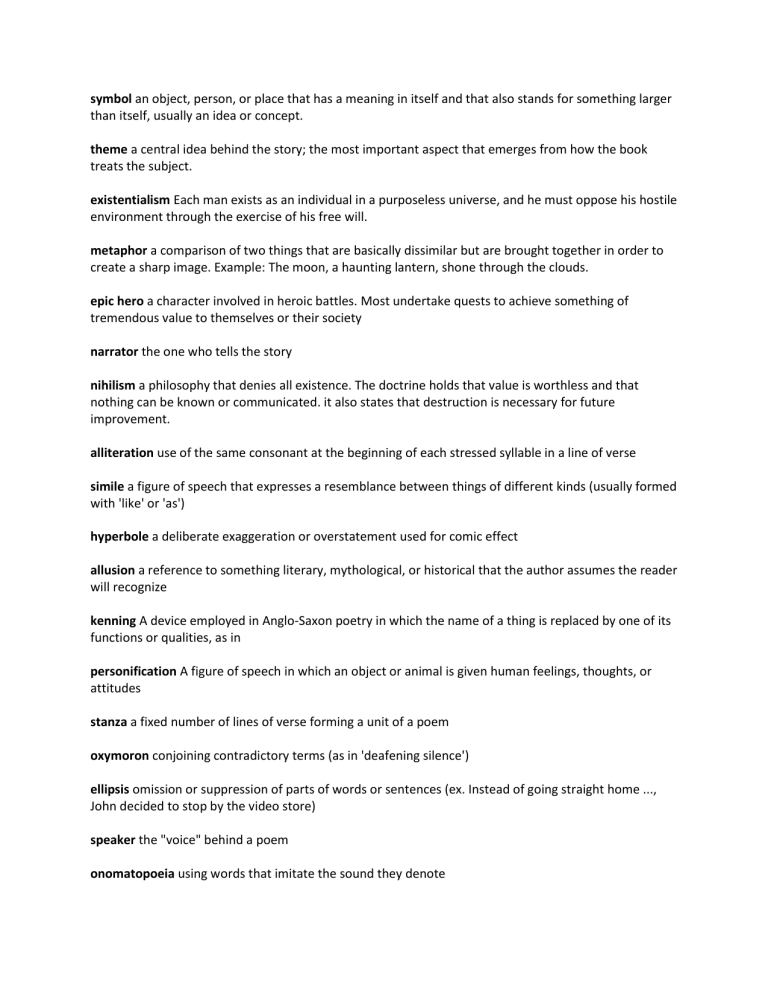
symbol an object, person, or place that has a meaning in itself and that also stands for something larger than itself, usually an idea or concept. theme a central idea behind the story; the most important aspect that emerges from how the book treats the subject. existentialism Each man exists as an individual in a purposeless universe, and he must oppose his hostile environment through the exercise of his free will. metaphor a comparison of two things that are basically dissimilar but are brought together in order to create a sharp image. Example: The moon, a haunting lantern, shone through the clouds. epic hero a character involved in heroic battles. Most undertake quests to achieve something of tremendous value to themselves or their society narrator the one who tells the story nihilism a philosophy that denies all existence. The doctrine holds that value is worthless and that nothing can be known or communicated. it also states that destruction is necessary for future improvement. alliteration use of the same consonant at the beginning of each stressed syllable in a line of verse simile a figure of speech that expresses a resemblance between things of different kinds (usually formed with 'like' or 'as') hyperbole a deliberate exaggeration or overstatement used for comic effect allusion a reference to something literary, mythological, or historical that the author assumes the reader will recognize kenning A device employed in Anglo-Saxon poetry in which the name of a thing is replaced by one of its functions or qualities, as in personification A figure of speech in which an object or animal is given human feelings, thoughts, or attitudes stanza a fixed number of lines of verse forming a unit of a poem oxymoron conjoining contradictory terms (as in 'deafening silence') ellipsis omission or suppression of parts of words or sentences (ex. Instead of going straight home ..., John decided to stop by the video store) speaker the "voice" behind a poem onomatopoeia using words that imitate the sound they denote caesura a break or pause (usually for sense) in the middle of a verse line rhyming couplet two lines of poetry that rhyme imagery quatrain a stanza of four lines
